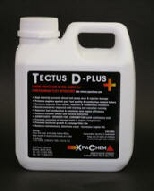
Copyright © XpaChem Industries 2013
Contact Details:
P.O. Box 13423; Northmead, 1511
Tel: + 27 10 235 0862
Cell: +27 82 552 2160
Fax: +27 86 661 1160
E-




REG. No. CK92/26942/23 ADVANCED ADDITIVE TECHNOLOGY
 TECTUS D-
TECTUS D-
This is a very advanced product which essentially allows commercial operators to take complete control of their fuel quality, by upgrading it to the same standard as international “Super Diesel” (also known "Premium Diesel"). meeting the latest EN590 standards. This is a higher grade of diesel with a number of operational advantages, but which is usually a bit more expensive than normal diesel.
Tectus D-
It has an exceptionally high detergency (cleaning effect) which not only prevents new deposits from forming, it removes EXISTING heavy carbon deposits from piston tops, combustion chambers and exhaust valves (several tank fill-
It also incorporates a unique “flame origination” technology which specifically targets a very difficult area in the combustion zone to keep clean and free of deposits (important for combustion efficiency); this is the area on, and immediately surrounding, the injector tips.
It chemically weakens the bonds between the fuel molecules to improve ATOMIZATION of the fuel into smaller droplets as they are forced through the injectors. This improves mixing with the air and combustion efficiency.
It improves the cetane number (ignition efficiency) of the fuel, thus improving cold starts, and reducing engine stress due to delayed ignition (“diesel knock”). You will notice that engines are smoother and quieter and emit far less white smoke from the exhaust, particularly after a cold start. This also has benefits for engine life, since there is much less “washing” of the cylinder walls during warm-
Many operators have also reported improved power outputs – possibly due to the combination of these features.
The combination of all these actions result in fuel related savings which add up to anything between 3% and 10%. (See Chart for details) The average is about 5 to 7%, depending on operating conditions, equipment type and condition, base fuel quality etc.
Cost Effectiveness
The product cost is in the region of 0.9% of fuel cost, so it is easy to see that even with the minimum saving, (around 3%), it is still easily covered by fuel savings alone. In addition there are all the operational (eg; reduced downtime and overhaul) savings to consider.
These benefits combine to give GREATER operational savings AND fuel consumption benefits than Injecta-